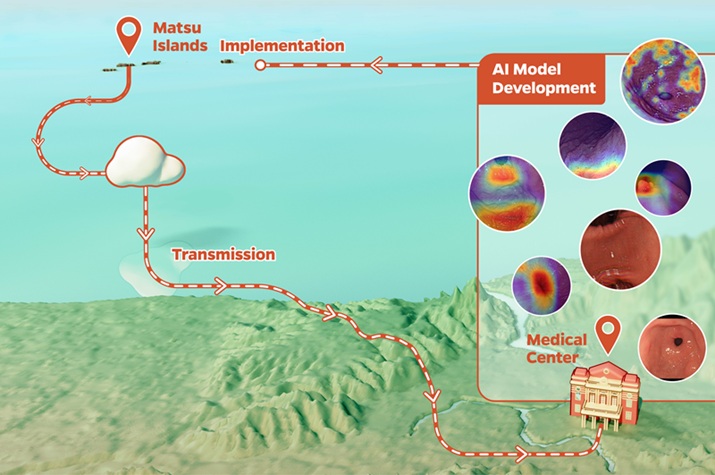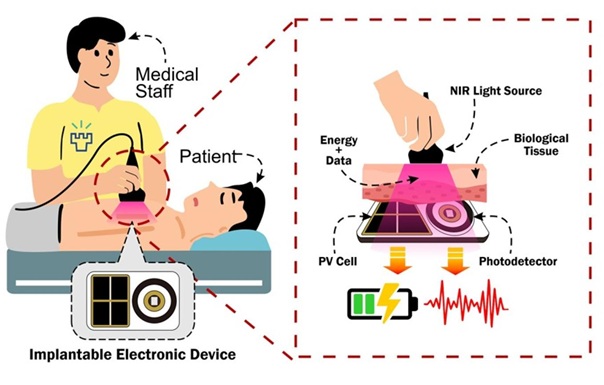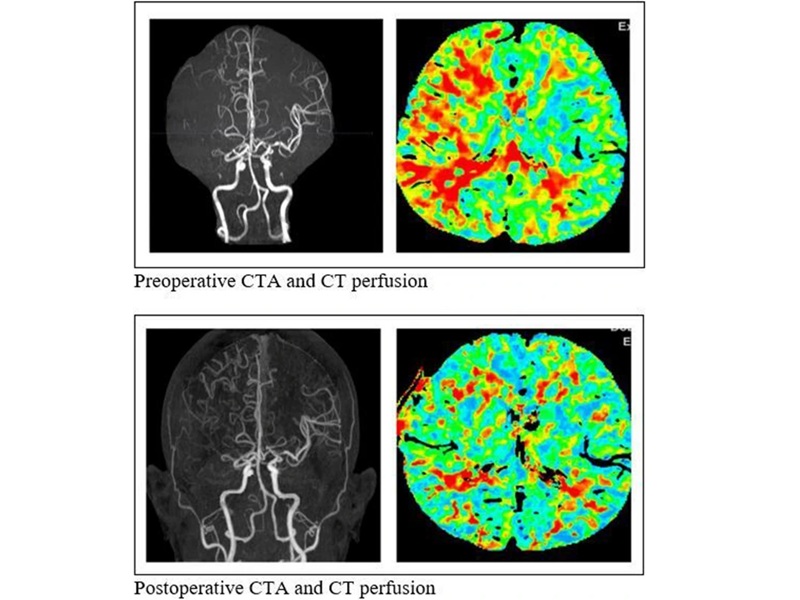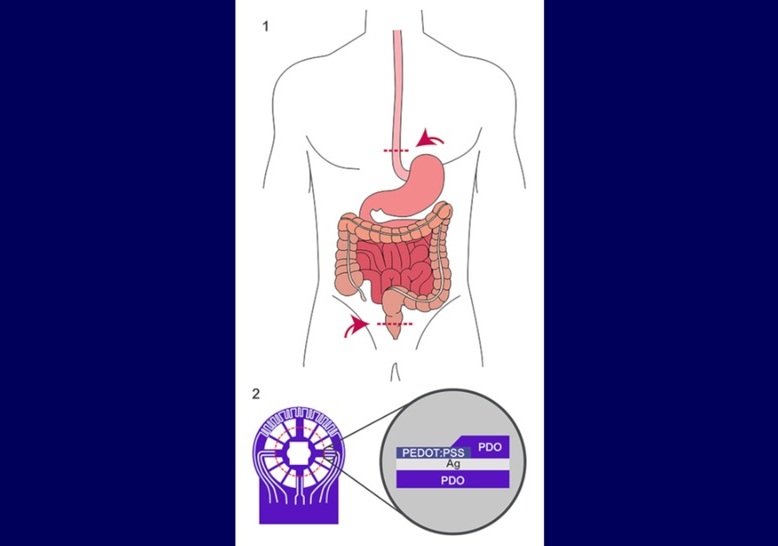Low Birthweight May Lead to Type 2 Diabetes
|
By HospiMedica International staff writers Posted on 06 Jul 2016 |
A new study finds an association between low birthweight babies and type 2 diabetes mellitus (2DM) in adulthood, but suggests the relationship might be causal.
Researchers at Tulane University (New Orleans, LA, USA) conducted a study that reviewed 3,627 individuals with 2DM and 12,974 controls (all of European ancestry) who participated in the Nurses’ Health Study and the Health Professionals Follow-Up Study. A genetic risk score (GRS) was calculated, based on five low-birthweight-related single nucleotide polymorphisms (SNPs). The researchers then assessed the evidence for causality, first by examining the association of the GRS and the individual SNPs with 2DM, and then by performing a Mendelian randomization analysis to estimate the potentially causal effect size of low birthweight on 2DM.
The results showed that for every one point increase in genetic risk score for low birthweight, there was an associated 6% higher risk of 2DM. For every one standard deviation of lower birthweight, the Mendelian randomization odds ratio was 2.94, providing support for the hypothesis that there is a causal relationship between a lower birthweight and an increased risk for developing 2DM. The association was stronger among female participants. The study was published on June 23, 2016, in Diabetologia.
“Type 2 diabetes was determined based on self-reports, and covariates such as smoking cigarettes, drinking alcohol, and doing physical activity were all assessed,” said lead author Lu Qi, MD, PhD, and colleagues of the School of Public Health and Tropical Medicine. “While previous studies have suggested a link between intrauterine malnutrition and type 2 diabetes, this study is unique in that it suggests a link that is specifically causal. Due to covariates including socioeconomic and lifestyle factors, it can be difficult to prove that causality does indeed exist.”
In epidemiology, Mendelian randomization is a method of using measured variation in genes of known function to examine the causal effect of a modifiable exposure on disease in non-experimental studies. It uses common genetic polymorphisms with well-understood effects on exposure patterns, or effects that mimic those produced by modifiable exposures. The genotype must only affect the disease status indirectly via its effect on the exposure of interest. Mendelian randomization was first described as a method for obtaining unbiased estimates of the effects of a putative causal variable, without conducting a traditional randomized trial.
Related Links:
Tulane University
Researchers at Tulane University (New Orleans, LA, USA) conducted a study that reviewed 3,627 individuals with 2DM and 12,974 controls (all of European ancestry) who participated in the Nurses’ Health Study and the Health Professionals Follow-Up Study. A genetic risk score (GRS) was calculated, based on five low-birthweight-related single nucleotide polymorphisms (SNPs). The researchers then assessed the evidence for causality, first by examining the association of the GRS and the individual SNPs with 2DM, and then by performing a Mendelian randomization analysis to estimate the potentially causal effect size of low birthweight on 2DM.
The results showed that for every one point increase in genetic risk score for low birthweight, there was an associated 6% higher risk of 2DM. For every one standard deviation of lower birthweight, the Mendelian randomization odds ratio was 2.94, providing support for the hypothesis that there is a causal relationship between a lower birthweight and an increased risk for developing 2DM. The association was stronger among female participants. The study was published on June 23, 2016, in Diabetologia.
“Type 2 diabetes was determined based on self-reports, and covariates such as smoking cigarettes, drinking alcohol, and doing physical activity were all assessed,” said lead author Lu Qi, MD, PhD, and colleagues of the School of Public Health and Tropical Medicine. “While previous studies have suggested a link between intrauterine malnutrition and type 2 diabetes, this study is unique in that it suggests a link that is specifically causal. Due to covariates including socioeconomic and lifestyle factors, it can be difficult to prove that causality does indeed exist.”
In epidemiology, Mendelian randomization is a method of using measured variation in genes of known function to examine the causal effect of a modifiable exposure on disease in non-experimental studies. It uses common genetic polymorphisms with well-understood effects on exposure patterns, or effects that mimic those produced by modifiable exposures. The genotype must only affect the disease status indirectly via its effect on the exposure of interest. Mendelian randomization was first described as a method for obtaining unbiased estimates of the effects of a putative causal variable, without conducting a traditional randomized trial.
Related Links:
Tulane University
Latest Critical Care News
- Sprayable Powder-Type Hemostatic Agent Stops Bleeding in One Second
- Ultra-Stable Mucus-Inspired Hydrogel Boosts Gastrointestinal Wound Healing
- AI Model Helps Diagnose Often Undetected Heart Disease from Simple EKG
- E-Tattoos Harvest Energy and Monitor Health in Real Time
- Focused Ultrasound Tricks Tumors into Marking Themselves for Destruction
- World's Smallest Programmable Robot Opens Up New Possibilities in Medicine
- Remote Ventilate View Platform Enables Real-Time Monitoring of Patient-Ventilator Asynchrony
- Soft “Cyborg” Cardiac Patches Improve Stem Cell Heart Repair
- Soft Wearable System Offers Continuous Wireless Monitoring of Neonatal Health
- AI-Enhanced Wearables Could Transform Type 2 Diabetes and Prediabetes Care
- Breathable Electronic Skin Paves Way for Next-Generation Wearable Devices
- AI Transforming Colon Cancer Diagnosis
- Ventricular Assist Device Offers Long-Term Use in Children Waiting for Donor Heart
- Precision Approach Improves Immunotherapy Effectiveness for ICU Patients with Sepsis
- Soft Robots Could Donate Their Heart to Humans
- Bioadhesive Strategy Prevents Fibrosis Around Device Implants on Peripheral Nerves
Channels
Surgical Techniques
view channel
AI Detects Stomach Cancer Risk from Upper Endoscopic Images
In many parts of the world, doctors must make complex clinical decisions with limited access to specialist support, advanced diagnostics, or pathology services. This is especially challenging in gastrointestinal... Read more
NIR Light Enables Powering and Communicating with Implantable Medical Devices
Implantable medical devices rely on wireless communication and long-lasting power sources to function safely inside the body, yet existing radio-based methods raise concerns around security, interference,... Read morePatient Care
view channel
Revolutionary Automatic IV-Line Flushing Device to Enhance Infusion Care
More than 80% of in-hospital patients receive intravenous (IV) therapy. Every dose of IV medicine delivered in a small volume (<250 mL) infusion bag should be followed by subsequent flushing to ensure... Read more
VR Training Tool Combats Contamination of Portable Medical Equipment
Healthcare-associated infections (HAIs) impact one in every 31 patients, cause nearly 100,000 deaths each year, and cost USD 28.4 billion in direct medical expenses. Notably, up to 75% of these infections... Read more
Portable Biosensor Platform to Reduce Hospital-Acquired Infections
Approximately 4 million patients in the European Union acquire healthcare-associated infections (HAIs) or nosocomial infections each year, with around 37,000 deaths directly resulting from these infections,... Read moreFirst-Of-Its-Kind Portable Germicidal Light Technology Disinfects High-Touch Clinical Surfaces in Seconds
Reducing healthcare-acquired infections (HAIs) remains a pressing issue within global healthcare systems. In the United States alone, 1.7 million patients contract HAIs annually, leading to approximately... Read moreHealth IT
view channel
EMR-Based Tool Predicts Graft Failure After Kidney Transplant
Kidney transplantation offers patients with end-stage kidney disease longer survival and better quality of life than dialysis, yet graft failure remains a major challenge. Although a successful transplant... Read more
Printable Molecule-Selective Nanoparticles Enable Mass Production of Wearable Biosensors
The future of medicine is likely to focus on the personalization of healthcare—understanding exactly what an individual requires and delivering the appropriate combination of nutrients, metabolites, and... Read moreBusiness
view channel
Philips and Masimo Partner to Advance Patient Monitoring Measurement Technologies
Royal Philips (Amsterdam, Netherlands) and Masimo (Irvine, California, USA) have renewed their multi-year strategic collaboration, combining Philips’ expertise in patient monitoring with Masimo’s noninvasive... Read more
B. Braun Acquires Digital Microsurgery Company True Digital Surgery
The high-end microsurgery market in neurosurgery, spine, and ENT is undergoing a significant transformation. Traditional analog microscopes are giving way to digital exoscopes, which provide improved visualization,... Read more
CMEF 2025 to Promote Holistic and High-Quality Development of Medical and Health Industry
The 92nd China International Medical Equipment Fair (CMEF 2025) Autumn Exhibition is scheduled to be held from September 26 to 29 at the China Import and Export Fair Complex (Canton Fair Complex) in Guangzhou.... Read more















